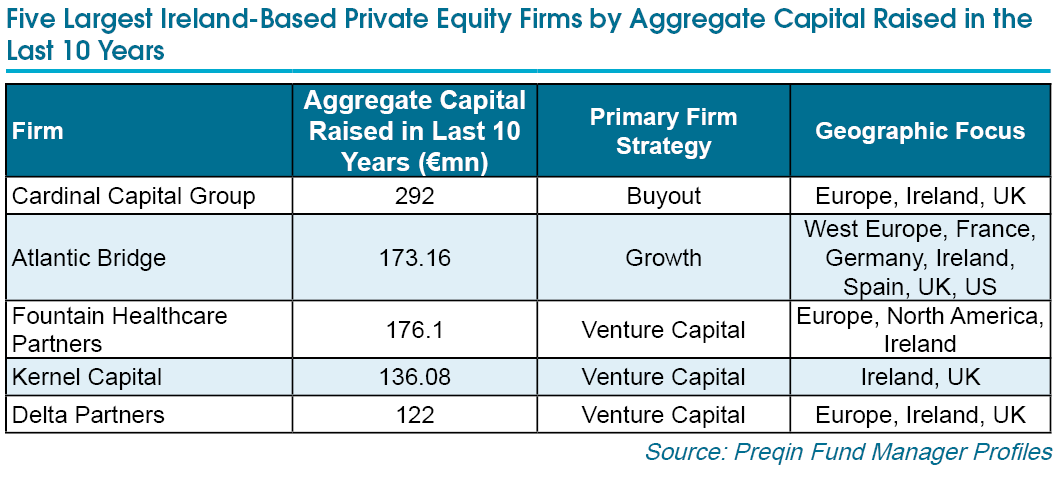This, together with other mechanisms popular in the private equity market eventually result in the obtained firm’s evaluation increasing substantially in value from the time it was purchased, creating a lucrative exit technique for the PE firmwhether that’s a resale, an initial public offering (IPO), or another alternative (nfl free agent). One popular exit method for private equity involves growing and enhancing a middle-market company and offering it to a big corporation for a large profit.
Nevertheless, the large majority of deals live in the middle market at the $100 million to $500 million range, and the lower-middle market below $100 million. Since the best gravitate towards the bigger offers, the middle market is a substantially under served market. There are more sellers than there are extremely skilled and positioned finance professionals with extensive buyer networks and resources to handle an offer.
Flying below the radar of large multinational corporations, a number of these little companies often provide higher-quality client service, and/or specific niche services and products that are not being provided by the large conglomerates. Such upsides bring in the interest of private-equity firms, as they possess the insights and savvy to exploit such chances and take the business to the next level.

Private-equity investors must have reputable, capable, and reliable management in place. A lot of supervisors at portfolio companies are provided equity and perk payment structures that reward them for hitting their financial targets. private equity firm. Such positioning of goals is generally needed before an offer gets done. Private equity is often out of the equation for individuals who can’t invest millions of dollars, however it shouldn’t be.
There are several private equity financial investment firmsalso called business advancement companiesthat deal publicly-traded stock, giving average investors the chance to own a piece of the private equity pie. Together with the Blackstone Group there is Apollo Global Management (APO), Carlyle Group (CG), and Kohlberg Kravis Roberts (KKR), best understood for its enormous leveraged buyout of RJR Nabisco in 1989.

These mutual funds are generally referred to as funds of funds. Average investors can likewise acquire shares of an exchange-traded fund (ETF) that holds shares of private equity business, such as ProShares Global Listed Private Equity ETF (PEX). With funds under management already in the trillions, private-equity firms have ended up being appealing financial investment lorries for wealthy individuals and organizations (million investors state).

As the industry draws in the very best and brightest in business America, the professionals at private-equity companies are generally successful in deploying investment capital and in increasing the values of their portfolio companies. However, there is likewise intense competitors in the M&A market for excellent companies to buy. As such, it is necessary that these companies establish strong relationships with deal and services experts to secure a strong offer flow.
Glossary Of Private Equity Terms


Specific funds can have their own timelines, investment objectives, and management viewpoints that separate them from other funds held within the very same, overarching management firm. Effective private equity companies will raise lots of funds over their life time, and as firms grow in size and complexity, their funds can grow in frequency, scale and even specificity.
Prior to going into politics in the 1990s, Romney co-founded Bain Capital, among the country’s largest and most rewarding private equity funds. David L. Ryan/Boston Globe via Getty Images David L. Ryan/Boston Globe through Getty Images Prior to entering politics in the 1990s, Romney co-founded Bain Capital, among the country’s largest and most rewarding private equity funds.
Ryan/Boston World via Getty Images In the run-up to Saturday’s GOP governmental main in South Carolina, prospects have actually clashed over the role of Bain Capital a firm that either produces or kills jobs, relying on whom you think. Front-runner Mitt Romney sees the bright side. Prior to entering politics in the 1990s, he co-founded Boston-based Bain Capital, one of the nation’s largest and most successful private equity funds (partner indicted counts).
But critics say that figure omits the legions of workers who were laid off by Bain. Prospect Rick Perry, who ended his campaign Thursday, had described Romney’s work as “vulture” capitalism. And previous House Speaker Newt Gingrich consistently raised questions about the firm’s technique to job-cutting. Prior to this debate emerged, the majority of Americans had never ever heard of Bain.
In the general public arena, anybody can turn to state, the New York Stock Exchange, and purchase shares of an openly traded company. But in the private equity investing world, just rich people and big institutions, such as pension funds, are welcome. That’s Bain’s world. Here’s how it works: This term explains companies like Bain, which gather up funds from wealthy people or institutions for the purpose of purchasing up companies and making a profit, typically within 4 to 7 years.
A common offer goes something like this: The equity firm buys a business through an auction. The firm then increases the worth of the business by, for example, upgrading its accounting system, procurement procedure and information technology, or by laying off employees and closing unprofitable operations. After the private equity firm gets the business in much better shape, it exits the offer by selling it to a large corporation or using stock to the general public.
The benefits can be huge, however the dangers are excellent too. Private equity companies headquartered in the U.S – million investors state.: Buyout/growth growth funds currently fundraising in the U.S.: Private equity-backed business headquartered in the U.S.: Staff members worked with by U.S. private equity-backed business: Notes: Since September 2011 Source: The Private Equity Growth Capital Council Often, the private equity firm utilizes strategies that critics say play out more as “vulture industrialism” an expression that some people are utilizing to describe a procedure where investors make enormous earnings while needlessly laying off employees.
